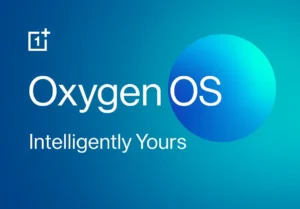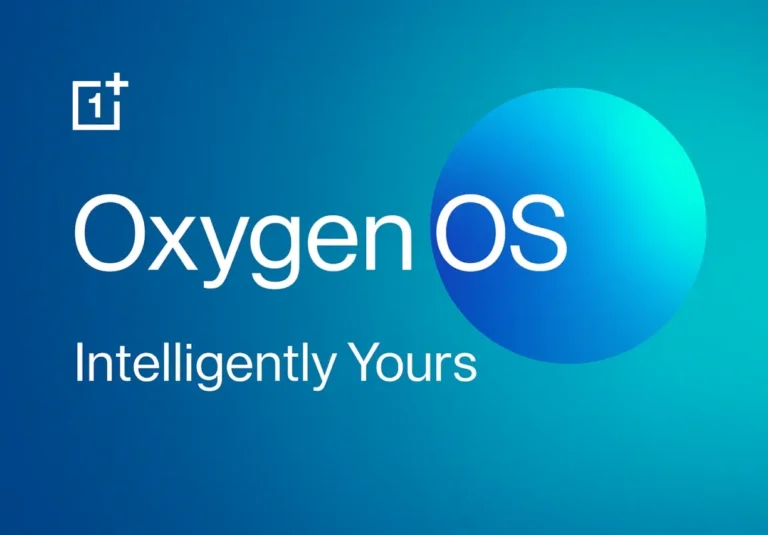A Deep Dive into Digital Nationalism, Privacy, and Tech Sovereignty
India is in the midst of a tech culture shift. Among recent viral stories, one that has captured widespread attention is the rise of Arattai, a messaging app developed by Zoho under the leadership of Sridhar Vembu. In recent days, Arattai has surged in popularity, overtaking other messaging platforms like WhatsApp, Telegram, and Signal in app store rankings. What’s driving this growth? What does it mean for digital privacy, global tech competition, and India’s self-reliance goals? Let’s explore.
What is Arattai?
-
Origins & Developer: Arattai is built by Zoho, the Chennai-based software conglomerate co-founded by Sridhar Vembu. The name Arattai means “chat” in Tamil.
-
Features: It positions itself as a secure, homegrown alternative to foreign messaging apps. Key selling points include claims of “spyware-free” operation and being attuned to local needs for privacy and user control.
-
Current Trajectory: As per recent reports, Arattai has recently climbed app store rankings in India, driven by a surge of downloads. The surge is connected with rising awareness about data privacy, desire for “Make in India” digital products, and possibly also a response to concerns over foreign apps.
Why It’s Gone Viral
Several overlapping factors have combined to make Arattai go viral:
-
Privacy & Security Concerns
A wave of concern among Indian tech users revolves around foreign apps’ data policies, possible back-doors, surveillance, and control. Whenever international platforms are in the news owing to alleged misuse of data, or new regulation proposals, Indian users become more open to local alternatives. Arattai taps exactly into that sentiment. -
Nationalism / Digital Sovereignty Sentiment
There’s growing public support for self-reliance (“Atmanirbhar Bharat”) not just in manufacturing or infrastructure, but increasingly in technology. A made-in-India messaging app plays well into this narrative, especially among urban users who are aware of global tech ecosystem dynamics. People want platforms not controlled or influenced by foreign interests. Arattai has benefited from this nationalism wave. -
Alternative to Big Tech
WhatsApp, Telegram, Signal and others are already deeply embedded, but also deeply scrutinized. Users are sensitive to changes in terms, privacy agreements, and moderation policies. These controversies often serve as trigger points for exploring alternatives. When a local app promises to address these concerns, there is curiosity + willingness to try. Arattai seems to have ridden one or more such moments. -
Network Effects & App Store Visibility
Once download numbers begin rising fast, app store algorithms amplify visibility. More people see Arattai, share it, mention it, which further accelerates downloads. Also, media coverage reinforces the momentum. So it becomes self-reinforcing. Arattai has recently overtaken several big names in app store rankings—evidence of this snowball effect. -
Government and Regulatory Climate
The regulatory environment in India has been encouraging for local tech; data localization laws, scrutiny of foreign apps, emphasis on privacy legislation, etc. While Arattai may not be a direct result of policy changes, it certainly benefits from the climate in which users are paying more attention to such issues. And possibly, some regulatory favor or legitimacy helps.
Reactions & Criticisms
While the rise has been viewed positively by many, Arattai’s popularity has also prompted scrutiny, skepticism, and debate.
-
Skepticism about Privacy Claims
It’s one thing to promise “spyware-free” or “secure”. It’s another to deliver it in practice. Experts are likely asking: Where is the code audited? What guarantees are there about server locations, encryption in transit and at rest, third-party access, logs? Local alternatives often face more scrutiny now precisely because users have higher expectations. -
User Base & Feature Parity
One of the biggest challenges for any new messaging platform is network effects. Unless many of your friends and contacts switch, you may have little reason to stick with the app. Also, features that users expect—group calls, media sharing, bots, cross-platform support—these require heavy engineering investment. Will Arattai match or come close to what established players provide? -
Sustainability & Monetization
How will Arattai sustain itself? The business model matters: will it charge users? Ads? Will there be premium features? If funding or monetization misaligns with user privacy, that could lead to skepticism. -
Regulatory Oversight and Data Protection Laws
As India moves towards stronger data protection laws, local apps will need to comply. That may necessitate transparency, audits, accountability frameworks. If Arattai fails in these, it could face backlash, legal issues, or lose user trust. -
Competition
With WhatsApp integrated into many social and business workflows; Telegram offering bots and large group chats; Signal offering high privacy; etc., Arattai has a steep hill to climb. The bigger platforms also have resources and user loyalty. Breaking into that ecosystem is hard.
Broader Implications
The virality of Arattai is more than a tech-story: it holds implications for Indian society, governance, and the global tech economy.
-
Digital Self-Reliance
Arattai’s success is emblematic of a wider push in India to reduce dependence on foreign tech infrastructure and services. If local platforms can capture sufficient user base, this could aid in strategic autonomy in communications and data. -
User Awareness and Demand Shaping Privacy Policy
Users now more commonly care about who owns the platform, how their data is stored, and what the terms are. The rise of Arattai suggests that people are willing to vote with their fingers, not just their opinions: choosing alternatives when they are available. That pushes all players (foreign or local) to improve transparency, strengthen encryption and privacy, or risk losing users. -
Regulatory & Legal Pressure
As more people use local apps, regulators may feel more urgency to define acceptable norms around consent, data protection, encryption, and oversight of messaging platforms. We may see more legislation, audits, possibly even standardization efforts. -
Tech Ecosystem & Investment
Zoho’s push and Arattai’s rise may encourage investment in Indian software startups that focus on privacy, security, and local markets. It might also push foreign platforms to respond more convincingly to local demands. -
Geopolitical & Global Tech Competition
In an era where tech is increasingly part of national strategic calculus, platforms like Arattai are part of how countries negotiate power, autonomy, and digital governance. With controversies around data leaks, foreign surveillance, etc., India’s success in building viable local alternatives may be watched closely by other countries.
Challenges & What to Watch
The initial momentum is strong, but long-term success isn’t guaranteed. Here are some key things to watch out for:
| Area | What to Monitor |
|---|---|
| Security Audits & Transparency | Will independent audits of Arattai’s security practices come out? Will source code or encryption protocols be made public or documented transparently? |
| Feature Growth | Will Arattai keep up with user expectations: voice/video calling, status updates, group management, integration with other services (file sharing, bots, etc.)? |
| Scalability & Reliability | As user base grows, servers will be under load. Uptime, responsiveness, ability to handle large group chats/media loads etc. will be tested. |
| Monetization | How will they make money? If monetization undermines user trust (ads, data sharing with third parties, etc.), that could be risky. |
| User Retention vs Churn | Downloads are one thing; sustained usage is another. Will people stick with Arattai after trying it? Will they recruit their network? |
| Regulatory Compliance | Data protection laws, content moderation, dealing with misuse/abuse: these are areas where foreign players have been scrutinized, and local apps will likely be similarly watched. |
| Interoperability & Integration | Will Arattai integrate with other tools? Will it allow migration/import of data? Connect with other services? That often helps adoption. |
Comparing to Other Viral or Trending Stories
Putting Arattai’s rise in perspective:
-
Other viral news items also reflect cultural, societal, or emotional trends: e.g. 19-yr-old rapper Param from Moga redefining womanhood with her debut song “That Girl” has gone viral.
-
Another is the viral video of a massive crowd outside the Greece Embassy in Delhi which has triggered fears of a human trafficking scandal involving Punjabi migrants.
What makes Arattai distinct is that it’s less of a sensational incident or creative viral media, but a technology shift – which tends to have more lasting effects. It is not just a moment of attention, but potentially the start of an ecosystem change.
Bigger Picture: What This Signals for India’s Tech Future
1. A Rising “Digital India 2.0”
In earlier years, the narrative was about connectivity: bringing the internet, devices, broadband to mass users. Now we’re entering a phase where data ownership, digital rights, privacy, sovereignty, and local alternatives are front and center.
Apps like Arattai are showing that Indian consumers are becoming more discerning: It’s no longer just about what’s free and ubiquitous; it’s about who owns the infrastructure, how safe it is, whether the data stays within India, whether the service respects user agency.
2. Privacy & Data Governance
India has, for some time, been considering stronger data protection regulations. The Personal Data Protection Bill has gone through several revisions and legislative stages. Public concern tends to arise when big apps revise terms, or when news emerges about data misuse. Local alternatives might gain favor if they can credibly assure more control, which would in turn put pressure on foreign apps to upgrade their privacy practices.
3. Local Innovation & Competition
Products like Arattai are likely to spur competition: not just in messaging, but in adjacent apps — video, voice-chat, secure file transfer, etc. Indian software firms could see greater opportunity and incentive to build for domestic markets first, then expand globally. Investors may pay more attention to “privacy tech” startups in India.
4. Regulatory, Ethical, & Infrastructure Imperatives
This moment also brings up questions: How will regulation keep up? What rules should there be for encryption, data storage, transparency of algorithms? What about misuse (misinformation, spam, harassment)? Domestic apps might find themselves under more scrutiny. Government infrastructure (servers, data centers, undersea cables) will also matter for latency, performance, and data residency.
5. Global Relevance
India is one of the world’s largest internet consumer populations. What happens here is watched by other emerging markets (Southeast Asia, Africa, Latin America). If Arattai or others prove that local alternatives can scale, succeed, and maintain trust, they may serve as models. Conversely, failures would be instructive as well.
Potential Risks & What Could Go Wrong
While the promise is strong, there are risks that could derail momentum or reduce trust:
-
Security or Privacy Lapse: If there is a breach, leak, or unexpected bug or vulnerability, users may lose trust quickly. One high-profile misstep could undo much of the goodwill built.
-
Slow Feature Development: If the app lags far behind what users expect (e.g. frequent crashes, missing features), many will revert to incumbent apps.
-
Poor Moderation or Abuse: Messaging platforms can become vectors for misinformation, spam, harassment. Users expect safety. If Arattai doesn’t build robust moderation, reporting, and abuse control, criticism will mount.
-
Monetization Pressure Leading to Compromise: Pressure to make money may lead to conflicting incentives — e.g. having to display ads, share metadata, engage with third parties, or other compromises that undercut promised privacy.
-
Regulation & Government Intervention: Governments often require compliance with surveillance, law enforcement demands, content takedowns, etc. If Arattai is seen as resisting those or being opaque, it could come under regulatory pressure.
-
Competition from Big Players: Big messaging apps have large engineering teams, established infrastructure, and deep pockets. They may counter by improving privacy features, offering incentives, or leveraging integration.
-
User Fatigue / Switching Costs: Even if people are curious, switching is costly: getting all your contacts on the new app, learning its quirks, transferring histories (if possible), etc.
What Might Happen Next
Given how Arattai is trending, here are plausible near-term and longer-term scenarios:
-
Short Term (weeks-months)
-
A rapid increase in download numbers, user reviews, word-of-mouth referrals.
-
Media coverage (positive and skeptical) will grow; security experts will start examining it in more detail.
-
Possibly, some early bugs, crashes or usability complaints as load increases.
-
Zoho may push updates to add popular features or improve performance.
-
-
Medium Term (6-12 months)
-
Pressure to roll out advanced features (group calls, media, bots, integration).
-
Potential partnerships with telcos, or bundling in apps or devices.
-
User retention tests – how many people stick with Arattai.
-
Regulatory attention – especially if user numbers get large, or if content moderation or data practices draw complaints.
-
Possible monetization moves (premium features, enterprise offerings, etc.).
-
-
Long Term (1-3 years)
-
If successful, Arattai could become a major messaging player in India, perhaps dominant among users who prioritize privacy & local control.
-
Could expand to international markets with similar digital sovereignty concerns.
-
Might lead to a broader ecosystem: third-party plugins, APIs, local extensions, etc.
-
Alternatively, if unable to compete feature-wise or trust-wise, it might remain niche, or be acquired.
-
Why This Matters Beyond Tech
While “another messaging app” might sound mundane, Arattai’s rise is a mirror to larger social, cultural, political, and economic trends in India.
-
Trust in Institutions: As people become more skeptical of foreign tech companies, of opaque terms & conditions, of data misuse scandals, they turn toward entities they feel are more accountable or closer to them.
-
Identity & Culture: For many, using a homegrown app can feel more culturally grounded. There’s pride in “owning” one’s digital tools.
-
Privacy as Rights: Tools like Arattai are part of a larger conversation about citizens’ data rights, individual autonomy, surveillance, consent.
-
Digital Inclusion: If built well, with consideration for local languages, low bandwidth, accessibility, such apps can bring more people into digital participation on fair terms.
-
Economic Impact: Success of such local apps supports local employment, skills development, tech R&D, build-out of infrastructure, contributing to growth beyond just user numbers.
Conclusion
The meteoric rise of Arattai is symptomatic of a turning point in India’s digital landscape. It is not just a viral trend, but a potential inflection in how Indian users perceive technology—what they want from it, from whom, and on what terms.
If Arattai fulfills its promise of privacy, security, and feature-richness, while scaling reliably, it could become a cornerstone of India’s push for tech self-reliance. But the road ahead is challenging: meeting user expectations, maintaining trust, monetizing without compromising values, and navigating regulatory waters are non-trivial tasks.
Nevertheless, Arattai is more than just a messaging app that’s “going viral” — it’s a sign of changing user priorities, of increasing awareness about who controls our digital lives, and of India’s growing willingness to build its own digital future.
Lorem ipsum dolor sit amet, consectetur adipiscing elit. Ut elit tellus, luctus nec ullamcorper mattis, pulvinar dapibus leo.
Lorem ipsum dolor sit amet, consectetur adipiscing elit. Ut elit tellus, luctus nec ullamcorper mattis, pulvinar dapibus leo.










Very nice . Bharat Zindabad